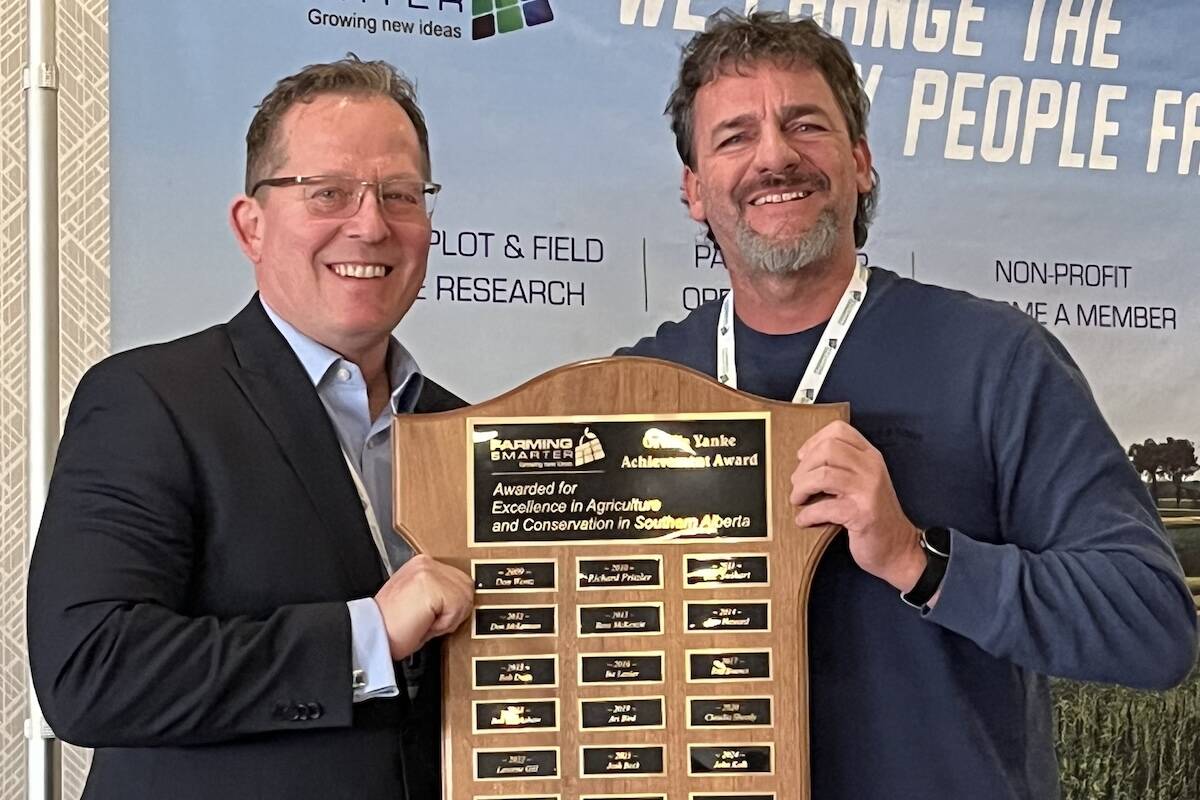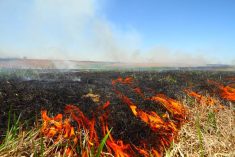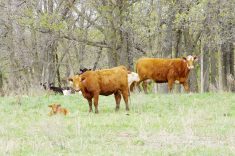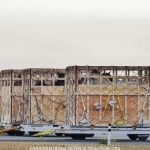Alberta farmers are right to be worried about how the industry’s new health and safety legislation will be enforced.
“Officers have some broad, sweeping powers,” said David Myrol, a lawyer at McLennan Ross LLP who specializes in occupational health and safety (OHS) law.
“When the OHS officer comes knocking at the door, the playing field changes. It’s not the same kind of scenario that we all see on TV, where you have the right to remain silent and the right not to incriminate yourself.
Read Also

Half a million plots and a lifetime of impact: Dr. Brian Beres wins Orville Yanke Award
The renowned Alberta scientist celebrated three decades of agricultural innovation and the pioneering of the GEM framework at the 2026 Farming Smarter Conference.
“That doesn’t apply to this area.”
Under the act, officers have the power to “interview people, and they can compel a statement from you,” Myrol said at the recent Alberta Federation of Agriculture AGM.
- Read more: Ag minister vows to listen to farm groups
“They can take you into a room, turn the tape recorder on, and under the OHS legislation, you’re obligated to answer those questions,” he said. “If you refuse to provide that information and it’s relevant to the accident, or you knowingly give false information, that’s an offence under the legislation. You can be charged, and if convicted, you could go to jail for up to six months for refusing to provide that information.”
Anyone questioned by an OHS officer has “the right to a reasonable opportunity to speak to counsel” — but that’s where the legal courtesy ends.
“At present, the Government of Alberta will not allow you to have a lawyer in the room with you while you’re being interviewed,” Myrol said to a room full of shaking heads and frustrated huffs.
“Those are really serious powers. There’s no way a homicide detective has these kinds of powers. But the NDP government didn’t set that up, just to be clear.”
OHS officers have inspection powers as well, he said, adding they are peace officers who have gone through “quite a bit of training.”
“They can come onto your worksite during business hours and inspect whatever they want. They can seize and take samples without a warrant, and they can compel statements.”
And if they spot a problem, they have a wide variety of enforcement tools that they can use, said Myrol.
“They can issue orders to your farming operation, if you’re not exempt, to stop work. They can shut your entire process down. They can issue a ‘stop-use tag’ to one of your pieces of equipment. They can order you to remediate anything that they think is unsafe or needs to be repaired to keep employees safe.”
Officers can also issue fines of up to $10,000 per day for as long as the violation goes on, and if an individual is charged for an offence under the legislation, they may also face jail time.
Flip side
But, he was quick to add, that’s never happened.
“Alberta has never sent anybody to jail for violating this legislation yet. I’m not advocating fearmongering. It’s just there as a tool the government can use.”
Moreover, although you have to answer questions and can’t make false statements, any statement you make can’t be used against you. Another major factor is that employers are able to launch a “due diligence defence,” which isn’t always the case in other types of law.
“The law recognizes that an accident might happen despite your best efforts,” said Myrol. “If I were charged, I would be able to stand up in front of the judge and say, ‘I exercised all reasonable care under the circumstances. Even though there was an accident, I did everything I could and you can’t measure me by a standard of perfection.’”
But it’s up to the farmer to prove that they did everything by the book. That means becoming familiar with workplace safety rules, taking reasonable steps to comply, and then documenting those steps.
And if there is an accident, you need to collect evidence of what happened.
“This is an area that presumes guilt when you have an accident, and it’s your job to collect your evidence to prove yourself innocent,” said Myrol. “If you miss that part of the equation, you do so at your peril.”
It’s also an employer’s duty to notify the province if there’s “a serious incident,” which is defined as any time a worker dies or is hospitalized for two or more days, as well as other major incidents such as uncontrollable fires, explosions, or major equipment accidents.
“If you don’t take responsibility and accountability for that after a serious workplace accident, you’re leaving it up to fate.”














